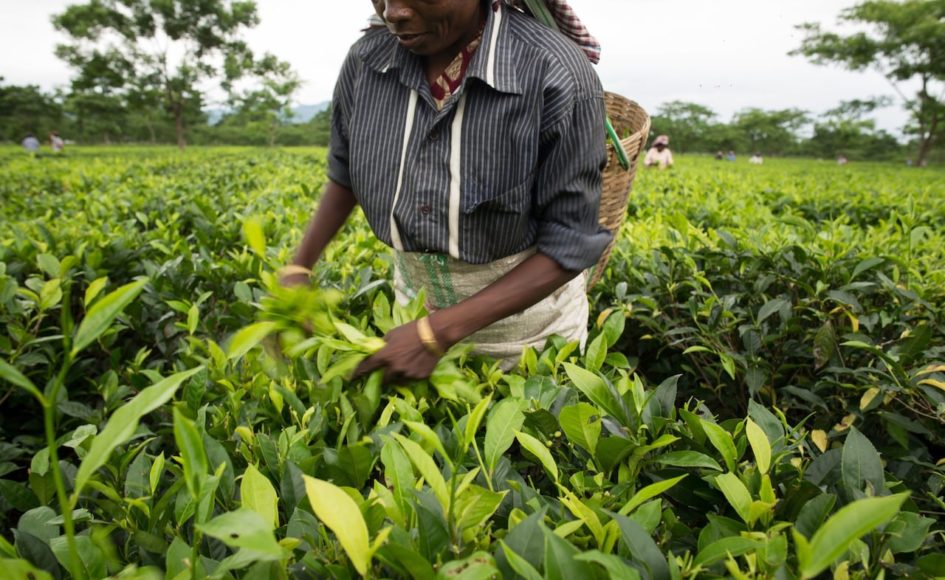The latest study conducted by BASIC for Oxfam Germany shows the indecent living conditions of workers and small producers in Assam, India, despite the fantastic creation of value at the other end of the chain in Europe and the United States.
A new study conducted by BASIC for Oxfam Germany reveals that brands and supermarkets are taking an ever-increasing share of the price paid by shoppers. In the United States, supermarkets and tea brands capture almost 94 percent of the price of a pack of black tea with less than 1 percent accruing to workers on tea estates. In the UK, supermarket and tea brands receive 49p, and workers collectively receive just three pence, from a pack of black tea selling for 74p and in Germany, supermarkets and tea brands retain €2.15 from a pack of tea that costs €2.48 – while just €0.03 goes to workers.
In Assam, India, interviews with workers on 50 tea estates reveal that half the workers questioned receive ‘Below Poverty Line’ ration cards from the government because wages are so low. Women workers, who are often in the lowest paid most labour intensive jobs, regularly clock up 13 hours of back breaking work a day. In terms of health, cholera and typhoid have been found to be common because workers lack access to toilets and safe drinking water.
According to the study conducted by BASIC for Oxfam in 2018 on which is based its international campaign “Behind the Barcode”, supermarkets have increased the share of the price they take from a basket of twelve everyday items from an average of 43.5 percent in 1996-8 to 48.3 percent in 2015. The share going to workers fell from 8.8 percent to 6.5 percent over the same period.
For further information:
In the medias:
- BBC “Oxfam alleges abuse in UK supermarket supply chains”
- The Guardian “Workers exploited at farms supplying UK supermarkets: report”
- The Telegraph “Oxfam criticises British supermarkets over conditions of workers on tea and fruit plantations”
- The Times of India “Tea workers get a raw deal as brands, marts grab lion’s share”
- The Hindu “Oxfam report flags Assam tea for labour rights violation”
- The Economic Times “Assam tea workers get only 7 per cent of price, says report”
- Der Spiegel “Oxfam-Studie zu Assam-Tee: 2,80 Euro für die Unternehmen, 4 Cent für die Arbeiter”
- Der Tagesspiegel “Teeplantagenarbeiter erhalten 1,73 Euro für 13 Stunden Pflücken“
- Deutsche Welle « Assam: Oxfam criticised supermarkets for tea working conditions”
- The Grocer “Supermarkets sourcing tea from ‘inhumane’ Assam plantations, finds Oxfam”


